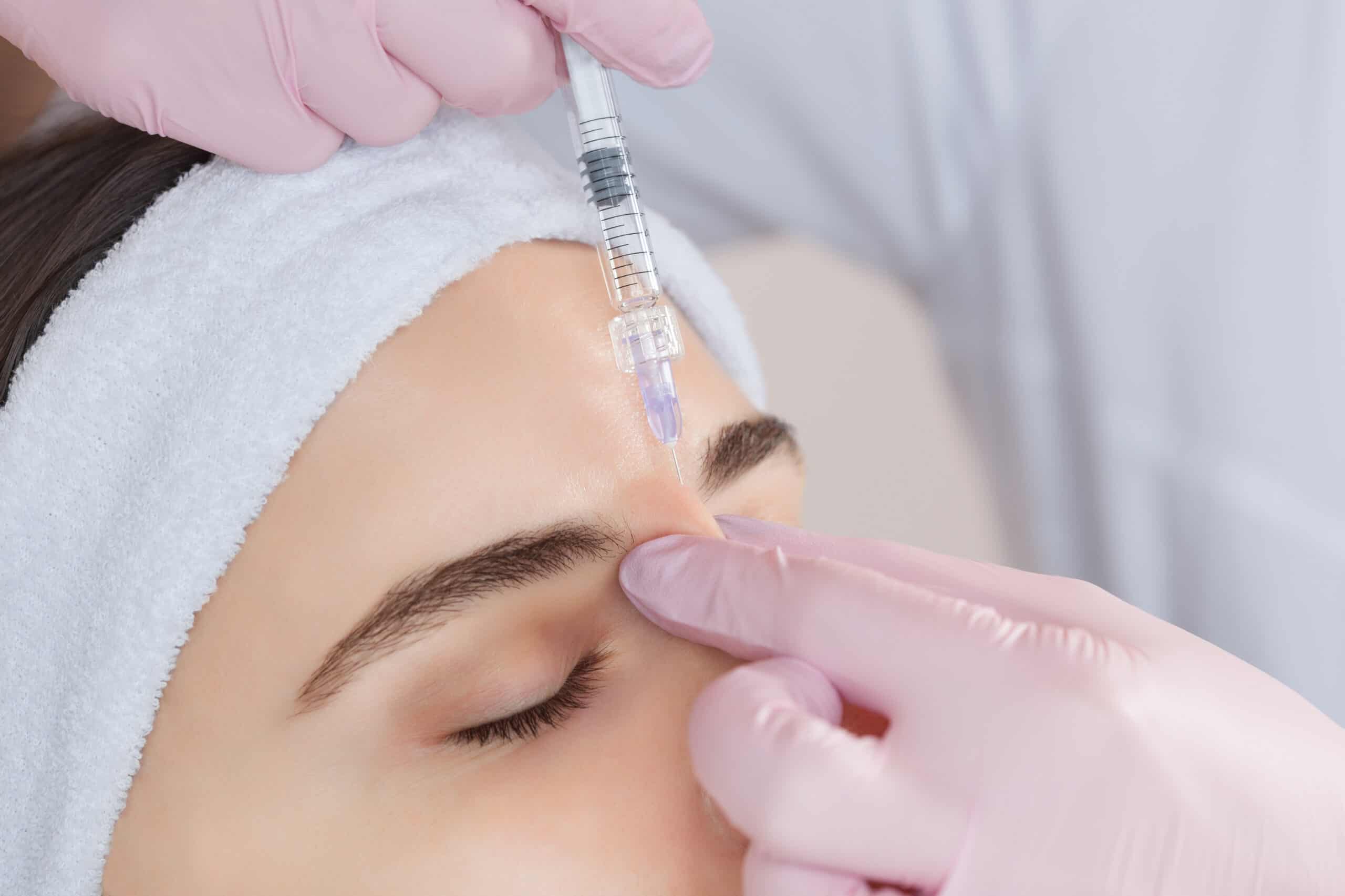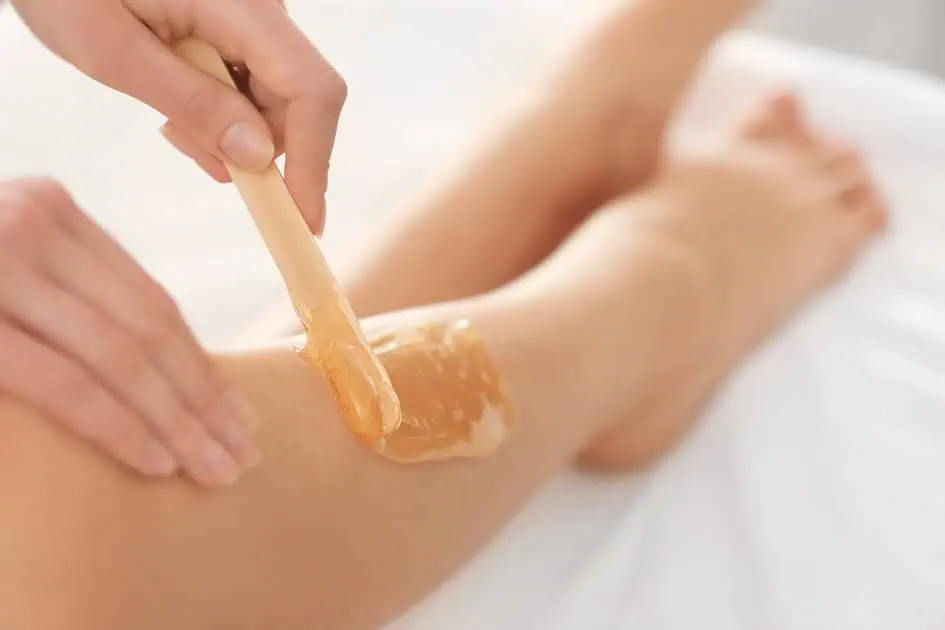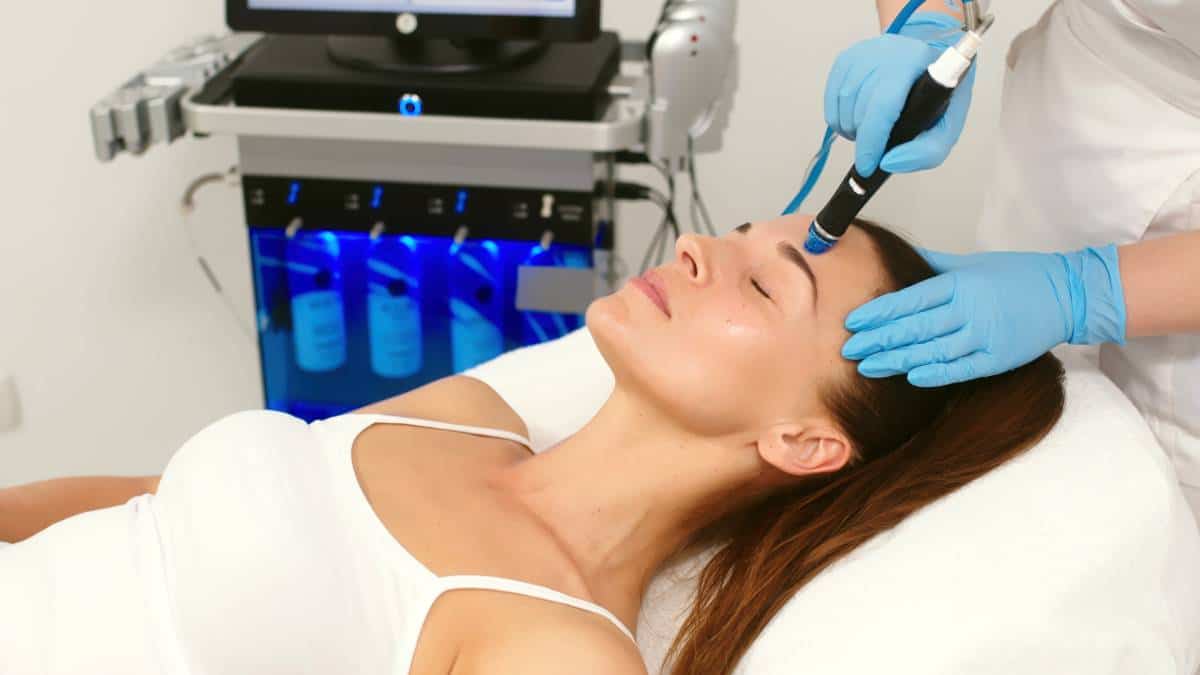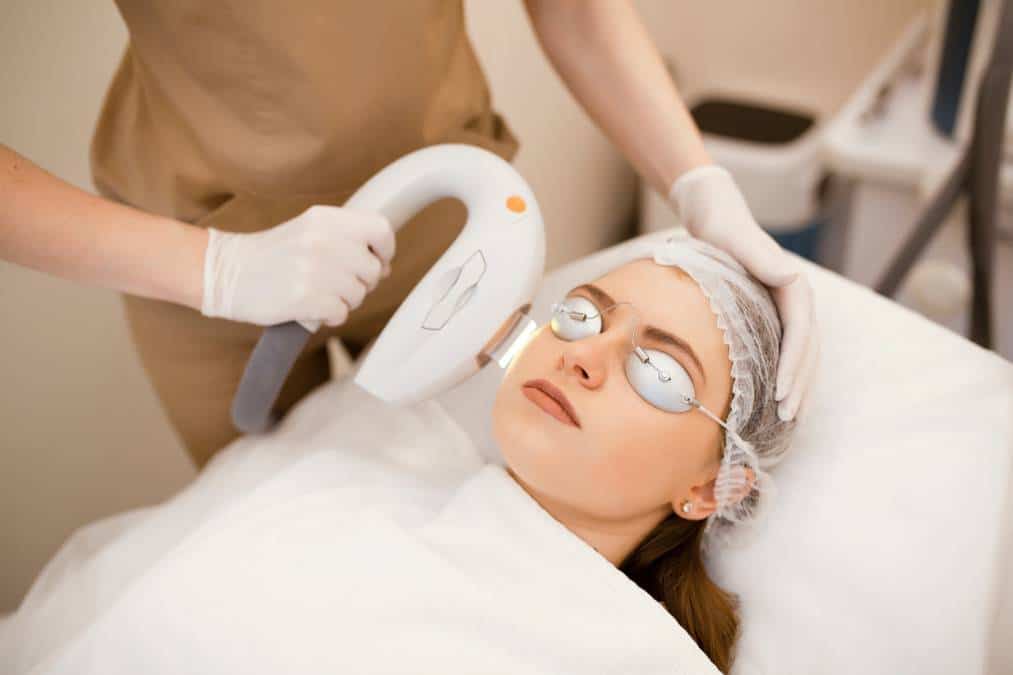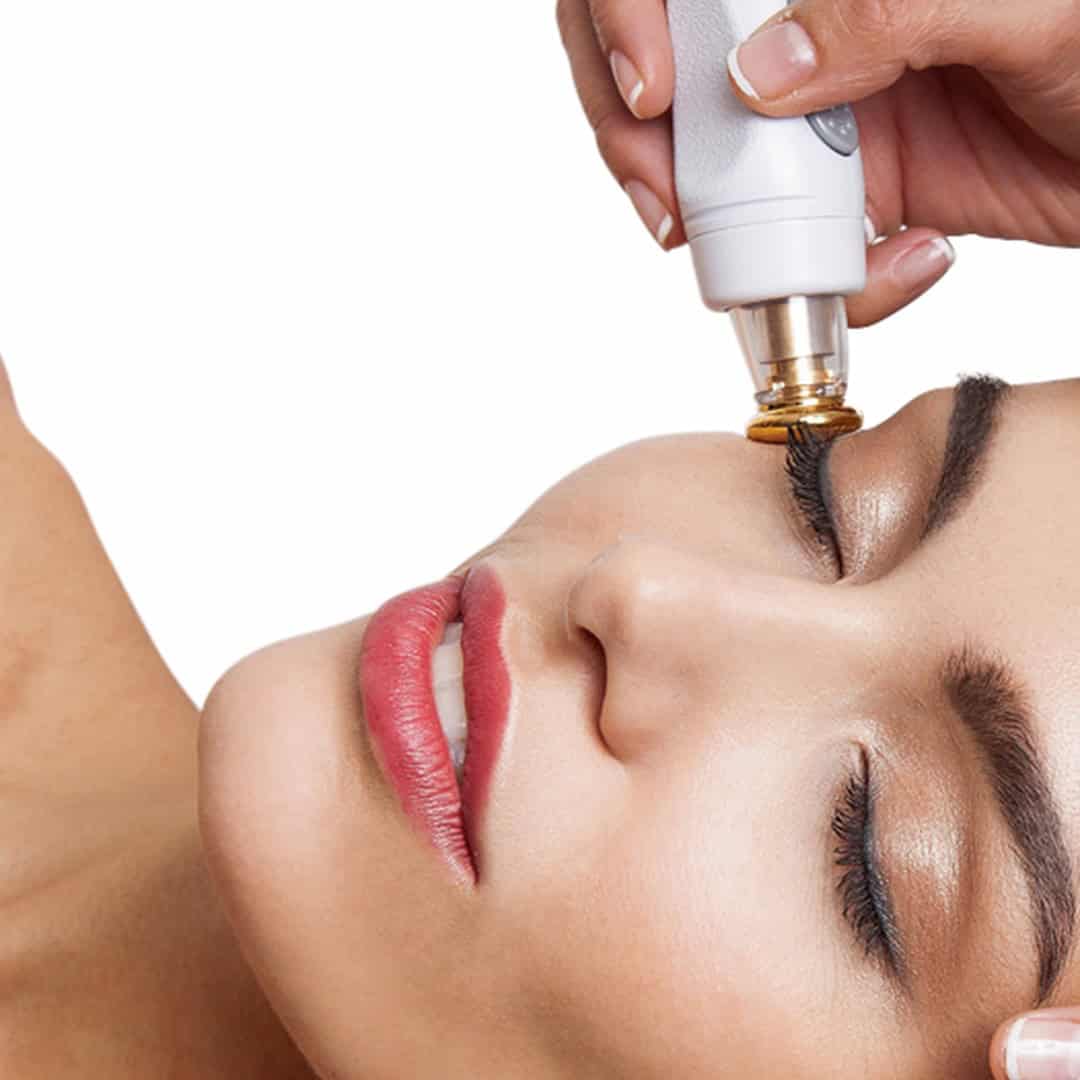Dermal fillers consist of biocompatible materials, such as hyaluronic acid, calcium hydroxylapatite, or poly-L-lactic acid, which are safe for use in the skin. These substances are injected beneath the skin’s surface to add volume, smooth out wrinkles, and restore a youthful and refreshed appearance.
These injections work by physically filling in areas that have lost volume due to the aging process or other factors. They can plump up the lips, soften lines around the mouth and eyes, enhance cheekbones, and even reshape the jawline.
Is Juvederm a dermal filler?
Yes, Juvederm is a brand of dermal filler. It is a hyaluronic acid (HA) dermal filler commonly used to reduce wrinkles, restore volume, and enhance facial features. Hyaluronic acid is a naturally occurring substance in the skin that aids in hydrating and volumizing. Juvederm injections are used by healthcare professionals for cosmetic purposes, such as smoothing out fine lines and wrinkles, plumping lips, and filling in areas with lost volume. There are different formulations of Juvederm designed for specific areas of the face, and they are often used for non-surgical facial rejuvenation treatments.
How are dermal fillers different from other injections?
Dermal fillers are a type of injection used for cosmetic or medical purposes, and they are different from other types of injections in several ways:
The first aspect is purpose:
Dermal fillers are mainly utilized to add volume, fill in wrinkles, and enhance facial features for aesthetic purposes. They are commonly used for facial rejuvenation. In contrast, other injections may be used for various medical or therapeutic purposes, such as vaccinations, medications, or medical procedures like blood draws.
Substances Used
Dermal fillers use hyaluronic acid, calcium hydroxylapatite, poly-L-lactic acid, or other biocompatible materials to plump and volumize the skin. Other injections may contain medications, vaccines, hormones, or therapeutic agents specific to the intended medical treatment.
Treatment Areas
Dermal filler injections are most commonly administered in the facial area to address concerns like fine lines, wrinkles, and volume loss. Other injections can be administered in different body parts, depending on the medical condition or treatment required.
Effects and Duration
Dermal fillers provide temporary results, and their effects typically last several months to a couple of years, depending on the type of filler used. Other injections may have more varied and often longer-lasting effects, depending on their intended medical purpose.
What age group is Juvederm most appropriate for?
Juvederm, like other dermal fillers, can be appropriate for individuals in a broad age range. Still, the specific age group for which it is most suitable varies depending on the individual’s needs and aesthetic goals. Here are some general guidelines:
- Early to Mid-20s to Early 30s: In this age group, Juvederm is often used for cosmetic purposes such as lip augmentation or enhancing facial features. Some individuals in this age range may use dermal fillers to address very early signs of aging or to achieve specific facial enhancements.
- The late 30s to 50s: Many people in this age group consider Juvederm and other dermal fillers to address the visible signs of aging, including reducing fine lines, wrinkles, and volume loss in areas around the mouth and the cheeks. The treatment can help restore a more youthful and refreshed appearance.
- 50s and Beyond: For older individuals, Juvederm can continue to be a valuable tool for addressing deeper wrinkles and volume loss, which become more pronounced with age. It can help to maintain a more youthful appearance without the need for surgical interventions.
How do you know if dermal filler is what you need?
Deciding if dermal fillers are the right choice for you involves careful consideration of your specific concerns, goals and a consultation with a qualified healthcare provider. Identifying your concerns, setting clear goals, and exploring treatment options are some of the factors that can help you decide if dermal filler is what you need.
Start by identifying the specific cosmetic concerns you want to address. Common concerns include fine lines, wrinkles, volume loss, lip enhancement, or the desire for more defined facial features. You also have to define your aesthetic goals. Consider what you hope to achieve with dermal fillers, whether it’s a more youthful appearance, smoother skin, or enhanced facial features.
Your healthcare provider will tackle various treatment options, including dermal fillers, and explain the benefits, risks, and expected outcomes. They may recommend alternative treatments if they believe they would better suit your needs. Be aware that dermal fillers are not permanent, and the results will fade. Consider your budget and the need for maintenance treatments to maintain the desired results. Ultimately, the decision should align with your personal preferences and comfort level. If you are comfortable with the procedure and the potential benefits outweigh your risks, then dermal fillers may be the right choice.
Tips for better collagen stimulation
Here are some tips for better collagen stimulation:
- Maintain a Healthy Diet:
- Consume foods rich in vitamin C, which is essential for collagen synthesis. Examples include citrus fruits, berries, and leafy greens.
- Include lean protein sources like beans, chicken, and fish, which provide the amino acids necessary for collagen production.
- Eat foods high in antioxidants, like fruits and vegetables, to protect collagen from damage caused by free radicals.
- Hydrate Your Skin:
- Drink sufficient water to keep your skin hydrated, as well-hydrated skin is more likely to produce collagen.
- Use a good-quality moisturizer to prevent dryness and maintain skin health.
- Topical Treatments:
- Topical products containing retinoids (like retinol), peptides, and growth factors can stimulate collagen production. Consult a dermatologist for product recommendations.
- Use products with hyaluronic acid to hydrate and plump the skin, making it look more youthful.
- Exercise Regularly:
- Practice regular physical activity to improve blood circulation, which delivers essential nutrients to the skin and promotes collagen production.
- Microneedling and Laser Therapies:
- Microneedling and laser treatments can stimulate collagen production by creating controlled micro-injuries in the skin. Dermatologists or licensed professionals typically perform these procedures.
- Collagen-Boosting Supplements:
- Some individuals consider collagen supplements, although their effectiveness is still a subject of ongoing research.
- Get Adequate Sleep:
- Quality sleep is essential for overall skin health and collagen production. Aim for 7-9 hours of restful sleep per night.
- Seek Professional Treatments:
- Consult a dermatologist or aesthetic professional for chemical peels, dermal fillers, and Botox, which can help stimulate collagen and improve skin texture and tone.
Get dermal fillers at Moxie Med Spa! Contact them to seek initial consultation.
